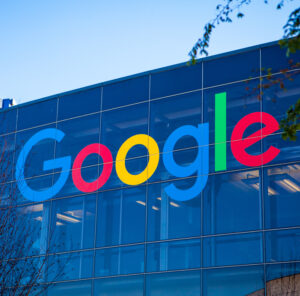When Google finally flipped the switch and stopped supporting third-party cookies for 1% of Chrome users, the ad industry reacted as if the sky was falling. Following nearly four years of pronouncements, pushed deadlines, industry committees, and technology tests, Google finally made good on its initial promise.
But at the end of the day, it’s unlikely that Google’s cookie deprecation plans will ever be fully fulfilled. There is simply too much evidence—from legal proceedings to a track record of punted deadlines—to think that third-party cookie support will disappear completely in 2024.
Still, marketers need to spend the year preparing for the future of the ad ecosystem, no matter the shape it takes.
The case against deprecation
Google has spent more than a decade trying to eliminate the cookie to cement its position as the only viable ad tech solution in the market. It has done this by demonizing the cookie under the auspices of privacy, stoking fear with both the news media and the public. And with a swirl of legal activity surrounding it, the tech giant was forced to put its cookie deprecation plan into meaningful action before it was too late.
Now, the one force that can truly derail Google’s plan is the government.
Google finally launched its plan in advance of several looming antitrust actions. A trial is set for September 9, 2024 in the U.S. for ad tech-specific antitrust challenges by the DOJ. Meanwhile, the DOJ just concluded a trial regarding Google’s search business, but has not yet issued a decision. Another trial around Google’s ad tech business, brought by Texas and joined by several other US states, is set for March 2025. If that’s not enough, the European Commission’s decision, which may come down against Google on competitive grounds, is expected to play out this year.
The January 2024 timing was likely Google’s effort to preempt any kind of judgment that would take place against its ad tech business later this year.
However—despite Google’s best efforts to put cookie deprecation into motion—injunctive relief from the government could force the company to pump the brakes. The government position will likely be that the ad tech landscape would change materially if Google were to completely stop supporting cookies within Chrome, so an antitrust trial must be completed before a decision regarding cookie support can be implemented.
Changes to the advertising ecosystem aside, Google will probably be forever changed following its legal battles. The company is likely to lose its trial over search, and they’ll likely lose this summer in the ad tech trial against the DOJ. Europe is likely to come down very hard on Google, and the company will be at a crossroads.
The case for preparing
Many of you are probably asking, “If the government will seek injunctive relief, and cookie support will remain, then can I sit back and do nothing?”
The answer is a firm “no.”
Basic marketing is more complex than ever before. Multi-channel strategies are now required. Brands can bet on the injunction and also invest in much larger issues. Chief among these is figuring out how to market in a world that is more than just programmatic ad buying across basic digital channels.
Even if brands simply want to maintain a focus on programmatic advertising, browsers like Safari and Firefox default to cookies off. While not as big as Chrome, these browsers account for more than one third of US desktop browser usage. Marketers who fail to use cookieless solutions are already essentially cutting out a third of their total audience.
It’s prudent to invest in solutions for the future of advertising, but the solution needs to address the need to communicate and engage with customers across a multi-channel ecosystem. This is in contrast to running scared and overinvesting in a band aid solution. Many brands will make this move in the early months of 2024, and may come to regret the heavy investment by the end of the year.
The cookie isn’t going away, but brands still need to get ready for changes in the ecosystem outside of browsers. Careful, considered planning and a strategic vision for reaching consumers in a multi-channel world is the way to go.
“Data-Driven Thinking” is written by members of the media community and contains fresh ideas on the digital revolution in media.
Follow Adstra and AdExchanger on LinkedIn.
Update 2/26/24: A previous version of this column erroneously said Microsoft Edge blocks third-party cookies by default.
For more articles featuring Jason Bier, click here.




















